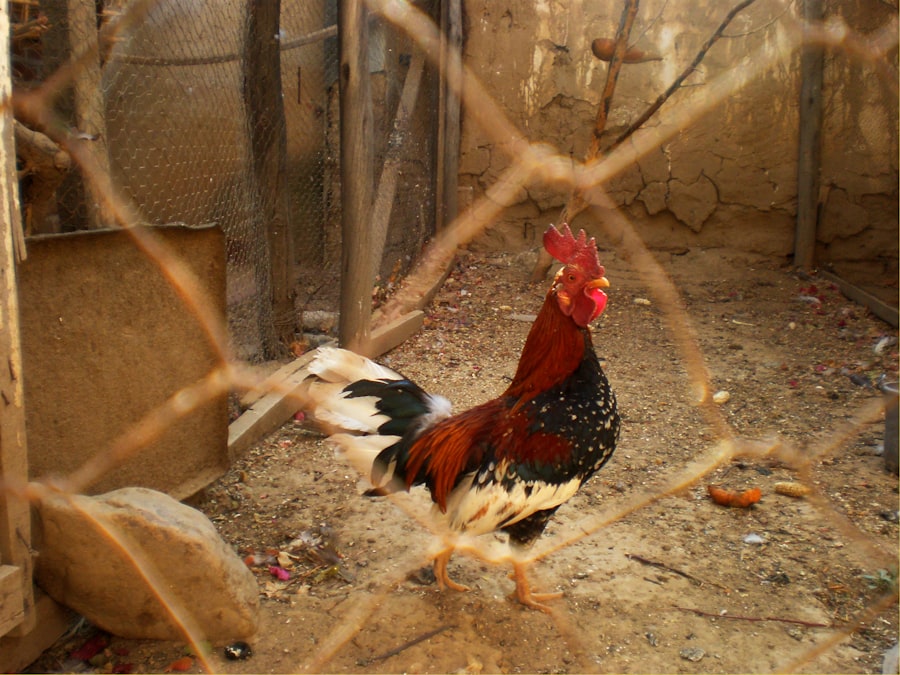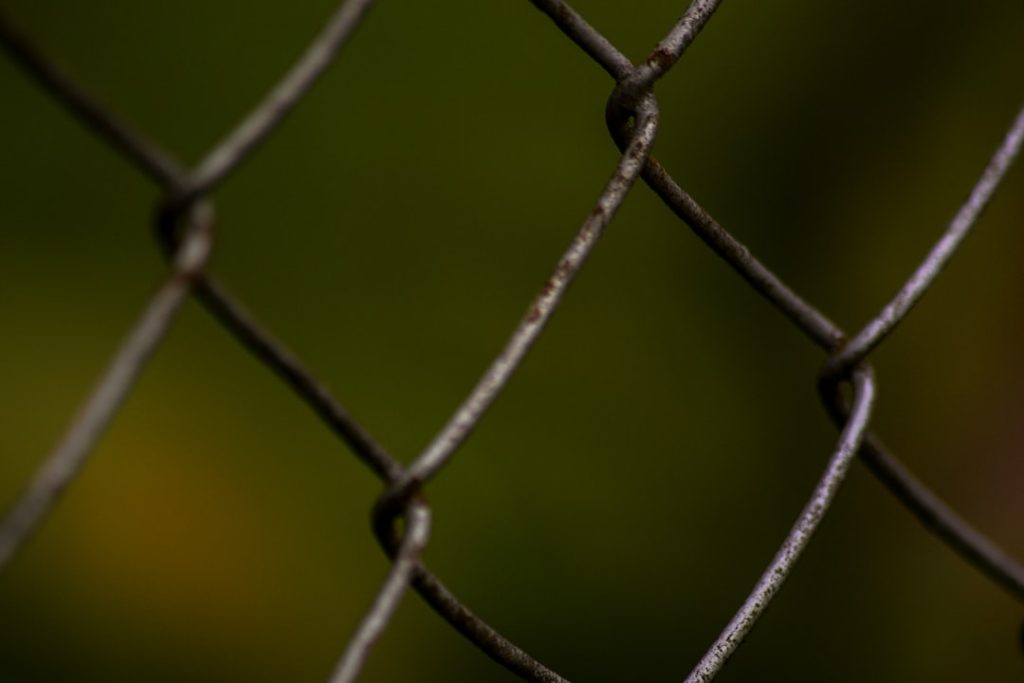Chickens are naturally curious and opportunistic creatures, attracted to areas with food, water, and shelter. They are easily startled by sudden movements or loud noises, which can cause them to flee or become agitated. Understanding these behaviors is crucial for effectively deterring chickens from unwanted areas.
By recognizing their natural tendencies, strategies can be implemented that play into their instincts and discourage them from entering specific spaces. Chickens are social animals that tend to follow the lead of their flock. If one chicken discovers a food source or shelter, the rest of the flock is likely to follow.
Understanding this social dynamic allows for targeting specific individuals within the flock to discourage the entire group from entering certain areas. A deep understanding of chicken behavior is essential in developing effective deterrent strategies. Chickens are creatures of habit, often returning to the same areas in search of food and shelter.
Recognizing this pattern allows for strategic disruption of their routine, making the area less appealing to them. Understanding chicken behavior is key to successfully deterring them from unwanted spaces.
Table of Contents
- 1 Creating Physical Barriers
- 2 Using Natural Deterrents
- 3 Implementing Sound and Visual Deterrents
- 4 Removing Attractive Food Sources
- 5 Training and Supervising Your Pets
- 6 Seeking Professional Help
- 7 FAQs
- 7.1 What are some effective methods for keeping chickens off your yard?
- 7.2 Why is it important to keep chickens off your yard?
- 7.3 Are there any natural deterrents that can be used to keep chickens off your yard?
- 7.4 What are some considerations to keep in mind when trying to keep chickens off your yard?
- 7.5 Can I use physical barriers to keep chickens off my yard?
Key Takeaways
- Chickens are naturally curious and will explore their surroundings, so understanding their behavior is key to deterring them from unwanted areas.
- Physical barriers such as fences and netting can effectively keep chickens out of specific areas and protect gardens or crops.
- Natural deterrents like predator urine or strong-smelling plants can help keep chickens away from certain areas without causing harm.
- Sound and visual deterrents, such as motion-activated alarms or reflective tape, can startle chickens and discourage them from entering restricted areas.
- Removing attractive food sources, such as fallen fruits or uncovered compost, can help reduce the incentive for chickens to enter unwanted areas.
Creating Physical Barriers
Protecting Vulnerable Areas
Chicken wire or mesh can be used to cover vulnerable areas such as gardens or flower beds, preventing chickens from digging up plants or pecking at produce. This effectively protects your crops from their destructive behavior.
Securing Openings and Gaps
Using hardware cloth to cover openings or gaps in structures can prevent chickens from gaining access to enclosed spaces such as sheds or garages.
Maintenance is Key
It’s essential to ensure that any physical barriers are secure and well-maintained to prevent chickens from finding ways to bypass them. Regular inspections and repairs are necessary to maintain the effectiveness of these deterrents. Overall, creating physical barriers is a proactive approach to deterring chickens and protecting vulnerable areas from their presence.
Using Natural Deterrents

Incorporating natural deterrents can be an effective way to discourage chickens from entering specific areas. One common natural deterrent is the use of predator decoys such as fake owls or hawks. These decoys can create the illusion of a threat, causing chickens to avoid the area out of fear of potential predators.
Additionally, incorporating reflective surfaces such as aluminum foil strips or shiny objects can create visual disturbances that deter chickens from entering specific spaces. Another natural deterrent is the use of strong scents or odors that are unpleasant to chickens. This can include the use of citrus peels, garlic, or vinegar placed strategically around the area to create an unappealing environment for chickens.
By incorporating natural deterrents, you can effectively discourage chickens from entering specific spaces without causing them harm. It’s important to regularly rotate and refresh natural deterrents to prevent chickens from becoming accustomed to them. Additionally, combining multiple natural deterrents can increase their effectiveness in deterring chickens from unwanted areas.
Overall, using natural deterrents is a humane and environmentally friendly approach to managing chicken behavior.
Implementing Sound and Visual Deterrents
Sound and visual deterrents can be effective in deterring chickens from specific areas by creating disturbances that make the environment less appealing to them. One common sound deterrent is the use of ultrasonic devices that emit high-frequency sounds that are unpleasant to chickens. These devices can be strategically placed around the area to create a sonic barrier that discourages chickens from entering.
Visual deterrents such as scarecrows or motion-activated lights can also be effective in deterring chickens by creating visual disturbances that startle them and cause them to avoid the area. Additionally, incorporating noise-making devices such as wind chimes or bells can create auditory disturbances that deter chickens from entering specific spaces. It’s important to regularly change the location and patterns of sound and visual deterrents to prevent chickens from becoming accustomed to them.
Additionally, combining multiple sound and visual deterrents can increase their effectiveness in deterring chickens from unwanted areas. Overall, implementing sound and visual deterrents is a proactive approach to managing chicken behavior without causing them harm.
Removing Attractive Food Sources
Chickens are naturally drawn to areas where they can find food, water, and shelter. By removing attractive food sources from specific areas, you can effectively discourage chickens from entering and causing damage or disturbance. This can include securing garbage bins, compost piles, or pet food containers to prevent chickens from accessing these food sources.
Additionally, keeping bird feeders elevated and inaccessible to chickens can prevent them from being attracted to specific areas. It’s important to regularly clean up spilled food or seeds around bird feeders to prevent attracting chickens and other wildlife to the area. By removing attractive food sources, you can create an environment that is less appealing to chickens, reducing the likelihood of them causing damage or disturbance.
Overall, removing attractive food sources is a proactive approach to managing chicken behavior and preventing them from entering unwanted spaces.
Training and Supervising Your Pets

Teaching Basic Obedience Commands
Teaching your pets basic obedience commands such as “stay” or “leave it” can be an effective way to control their movements and prevent them from accessing unwanted spaces. By consistently reinforcing these commands, you can ensure that your pets understand and respond to them promptly.
Supervising Outdoor Behavior
Supervising your pets when they are outdoors is equally important. By keeping a close eye on their behavior, you can intervene and redirect their attention if they show interest in entering specific areas. This proactive approach can help prevent unwanted behavior and ensure your pets’ safety.
Consistency and Positive Reinforcement
Consistency is key when it comes to training and supervising your pets. By providing positive reinforcement for desired behaviors and redirecting unwanted behaviors, you can effectively train your pets to avoid certain spaces. Remember to provide regular supervision and reinforcement to ensure that your pets understand and follow the desired behaviors.
Seeking Professional Help
If you have tried various deterrent strategies and are still struggling to manage chicken behavior, seeking professional help may be necessary. A professional animal behaviorist or pest control expert can provide valuable insight and guidance in developing effective strategies for deterring chickens from unwanted areas. Additionally, professional help may be necessary if you are dealing with a large number of chickens or a persistent infestation that requires specialized knowledge and resources to address effectively.
By seeking professional help, you can access the expertise and support needed to effectively manage chicken behavior and prevent them from causing damage or disturbance. Overall, seeking professional help is a proactive approach to addressing challenging chicken behavior issues and finding effective solutions for deterring them from unwanted spaces.
If you’re looking for more tips on keeping chickens off your yard, you might want to check out this article on chicken coop interior ideas. Creating a comfortable and secure coop for your chickens can help keep them contained and away from your yard.
FAQs
What are some effective methods for keeping chickens off your yard?
Some effective methods for keeping chickens off your yard include installing a fence, using chicken wire or netting, using motion-activated sprinklers, and using natural deterrents such as citrus peels or vinegar.
Why is it important to keep chickens off your yard?
It is important to keep chickens off your yard to prevent damage to your landscaping, garden, and outdoor furniture. Additionally, chickens can leave droppings that may be unsanitary and attract pests.
Are there any natural deterrents that can be used to keep chickens off your yard?
Yes, natural deterrents such as citrus peels, vinegar, or cayenne pepper can be effective in keeping chickens off your yard. Chickens tend to avoid areas with strong smells or tastes.
What are some considerations to keep in mind when trying to keep chickens off your yard?
When trying to keep chickens off your yard, it is important to consider the size and behavior of the chickens, the layout of your yard, and any local regulations or ordinances regarding the keeping of chickens.
Can I use physical barriers to keep chickens off my yard?
Yes, physical barriers such as fences, chicken wire, or netting can be effective in keeping chickens off your yard. It is important to ensure that the barriers are secure and properly installed to prevent chickens from accessing your yard.
Meet Walter, the feathered-friend fanatic of Florida! Nestled in the sunshine state, Walter struts through life with his feathered companions, clucking his way to happiness. With a coop that’s fancier than a five-star hotel, he’s the Don Juan of the chicken world. When he’s not teaching his hens to do the cha-cha, you’ll find him in a heated debate with his prized rooster, Sir Clucks-a-Lot. Walter’s poultry passion is no yolk; he’s the sunny-side-up guy you never knew you needed in your flock of friends!







